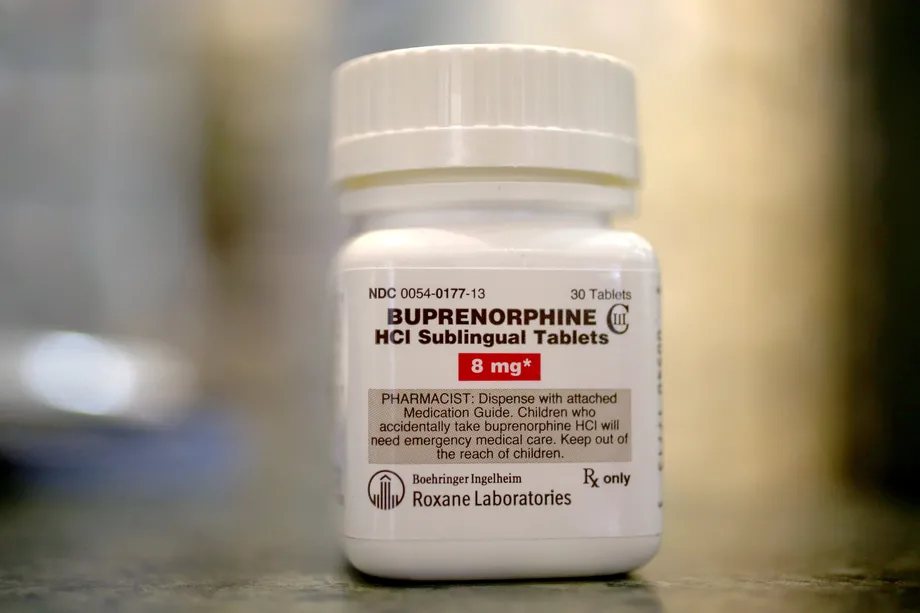Jabberwocky
Frumious Bandersnatch
- Joined
- Nov 3, 1999
- Messages
- 84,998

The biggest solution to America?s opioid epidemic is no mystery: a major expansion of proven addiction treatment programs. There is not only research backing up the approach but historical precedent too.
Over at the Atlantic, Olga Khazan provided a brief overview of what happened when France responded to its own heroin epidemic in the 1980s and ?90s by massively expanding access to the anti-addiction medication buprenorphine, which reduces withdrawal and cravings for people with an opioid addiction.
The results are fairly persuasive (emphasis mine):
In 1995, France made it so any doctor could prescribe buprenorphine without any special licensing or training. Buprenorphine, a first-line treatment for opioid addiction, is a medication that reduces cravings for opioids without becoming addictive itself.
With the change in policy, the majority of buprenorphine prescribers in France became primary-care doctors, rather than addiction specialists or psychiatrists. Suddenly, about 10 times as many addicted patients began receiving medication-assisted treatment, and half the country?s heroin users were being treated. Within four years, overdose deaths had declined by 79 percent.
As Khazan noted, France also rolled out a needle exchange program and other policies at the time that likely contributed to this drop. And unlike the US, France has a socialized health care system that makes it easy to get to a doctor offering these kinds of addiction services.
But the results are more or less in line with what you would expect to see with a huge expansion of buprenorphine. Studies show that buprenorphine and other anti-addiction medications like it, such as methadone, cut mortality among opioid addiction patients by half or more. That?s why experts consider the medications the gold standard of care for opioid addiction.
Yet these medications, like addiction treatment in general, remain very difficult to get in the US. According to a 2016 report by the surgeon general, only 10 percent of people in the US with a drug use disorder get specialty treatment ? which the report attributed to a lack of access to care. And even when treatment is available, other federal data suggests that fewer than half of treatment facilities offer opioid addiction medications.
That?s why experts argue that America could do a lot more to expand access to these types of medications. For example, the federal government currently makes doctors go through a special training to get a waiver to prescribe buprenorphine, and caps how many patients a doctor can prescribe the medication to. Congress is now considering tearing down some of those barriers, but they have presented big obstacles to doctors for years.
There are other hurdles, particularly related to cost. Very often, health insurers, including public health plans, try to avoid paying for addiction treatment. Providers also often won?t accept insurance, even if it does pay for the treatment. And in terms of addressing the supply of treatment clinics, Congress has only committed a few billion dollars here and there to the opioid epidemic throughout the years ? far from the tens of billions that many experts say is necessary.
Some of the poor outcomes are also related to stigma. Even among patients who would benefit from buprenorphine, there is a widespread view that it is substituting one opioid for another, since buprenorphine itself is an opioid. This view was restated last year by then-Health and Human Services Secretary Tom Price, who said, ?If we?re just substituting one opioid for another, we?re not moving the dial much. Folks need to be cured so they can be productive members of society and realize their dreams.? (A spokesperson for Price later walked back the statement, saying Price supports all kinds of drug addiction treatment.)
This misunderstands how addiction works. The problem with addiction isn?t necessarily drug use. Most Americans, after all, use all kinds of drugs ? caffeine, alcohol, medication ? with few problems. The problem is when that drug use begins to hurt someone?s day-to-day function ? by, say, putting his health at risk or leading him to steal or commit other crimes to get heroin. Buprenorphine lets people with drug addiction get a handle on their drug use without such negative outcomes, effectively stabilizing the dangers of addiction, even if it needs to be taken indefinitely.
Buprenorphine and other anti-addiction medications aren?t the only solution to the opioid crisis. Experts and activists have also called for harm-reduction efforts (like expanding access to the opioid overdose antidote naloxone) and cutting back on opioid painkiller prescriptions (while keeping the drugs accessible to patients who truly need them).
But the anti-addiction medications are often the biggest part of expert proposals ? and the history, at least in France, shows that expanding access to them works.
Source: https://www.vox.com/policy-and-politics/2018/4/17/17246484/opioid-epidemic-buprenorphine-france

